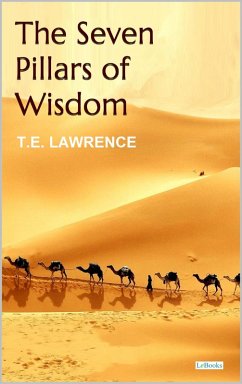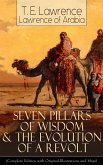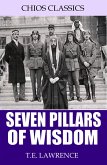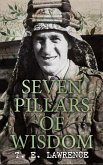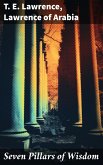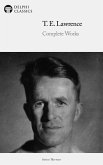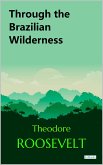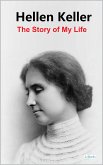The Seven Pillars of Wisdom is a classic of world literature, designated by Winston Churchill as "one of the greatest books ever written in the English language." The work was written between 1919 and 1922 by the British archaeologist and military hero Thomas Edward Lawrence, who, thanks to his book, became globally known as Lawrence of Arabia. Lawrence became a true hero for an entire generation for his role in the Arab Revolt against Turkish domination (1916-1918). The book, written shortly after this turbulent period, is a blend of war memoir, historical description, and reflection marked by self-critique. In some passages of the work, the author questions himself about his actions, his successes, and failures. The book has been a great success since its release. In 1962, the desert epic was brought to the cinema screens. Under the direction of David Lean, the film Lawrence of Arabia won seven Oscars and the acclaim of the American Film Institute as one of the top ten greatest films of all time.
Dieser Download kann aus rechtlichen Gründen nur mit Rechnungsadresse in A, B, BG, CY, CZ, D, DK, EW, E, FIN, F, GR, H, IRL, I, LT, L, LR, M, NL, PL, P, R, S, SLO, SK ausgeliefert werden.

